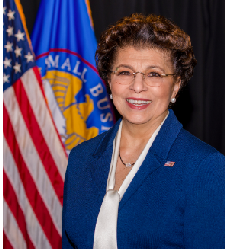Jamaican-American Knox College Psychology Professor Reveals Jamaican Study and Findings on Remote Acculturation
Galesburg, Illinois – Gail Ferguson’s latest research project unearthed an intriguing and potentially ground-breaking idea for psychologists: People sometimes develop a powerful cultural connection to a country that isn’t their own, even if they’ve never spent time there. The complete study and results may be reviewed at: http://faculty.knox.edu/gmfergus/cflstudy/
An assistant professor of psychology at Knox College, Ferguson found that lifelong residents of Kingston, Jamaica, often felt connected to the ways of life in both Jamaica and the United States. Despite living more than 500 miles from the United States, many of them routinely watched American movies, listened to American music, had American friends, and considered themselves somewhat American.
“They’re bicultural in terms of having a strong affinity toward the two cultures,” she said. Other Jamaicans in her study, Ferguson added, showed a much stronger preference for their own culture over U.S. culture.
Ferguson’s “Culture and Family Life Study” is the first to document a concept that she and her collaborators call “remote acculturation.” Basically, she explained, that term refers to the theory that “individuals can adopt the cultural identity and cultural behaviors/preferences of a society from which they are geographically separated.”

Dr. Gail Ferguson
“I believe this happens through globalization forces,” said Ferguson, who has spent years studying Jamaican families, especially children and adolescents. “It can occur through media, old and new; through tourism; through imports (of U.S. consumer goods). Jamaica imports more goods from the U.S. than from any other country, for example.” She plans to conduct follow-up research to investigate exactly how remote acculturation happens.
A New Direction
Ferguson’s study originally was designed to explore a different topic. She wanted to focus on Jamaican immigrants in the United States, examining how their cultural identity changes and how they adapt to life in the United States. To find some answers, she surveyed adolescents and their mothers from three groups of people:
•Jamaican immigrant families who live in the United States.
•Jamaican families who live in Kingston, Jamaica.
•Families from European-American or African-American backgrounds who have lived in the United States for generations.
Working with collaborators from the National Institutes of Health in Maryland and the University of the West Indies in Jamaica, Ferguson surveyed mothers and teenagers about their cultural identity, priorities and how they relate to each other in daily life.
Several Knox College students were “intensely involved in the research,” Ferguson said. They helped her collect and enter data for the study, which was completed in early 2010.
The “Culture and Family Life Study” also represents the first-ever investigation into another new concept in psychology, which Ferguson and her collaborators refer to as “tricultural acculturation.” The researchers found that most Jamaican immigrants to the United States retain their own ethnic culture while also learning to live in two other cultures: European-American and African-American.
“I hope this study is helpful to the future development of the Jamaican diaspora. It is my view that having data on the well-being of the Jamaican community in the US is the best way to document community strengths and weaknesses and the best (if not the only) way to lobby for resources to meet community needs,” stated Professor Jackson.
Founded in 1837, Knox is a national liberal arts college in Galesburg, Illinois, with students from 45 states and 48 countries. Knox’s “Old Main” is a National Historic Landmark and the only building remaining from the 1858 Lincoln-Douglas debates.


